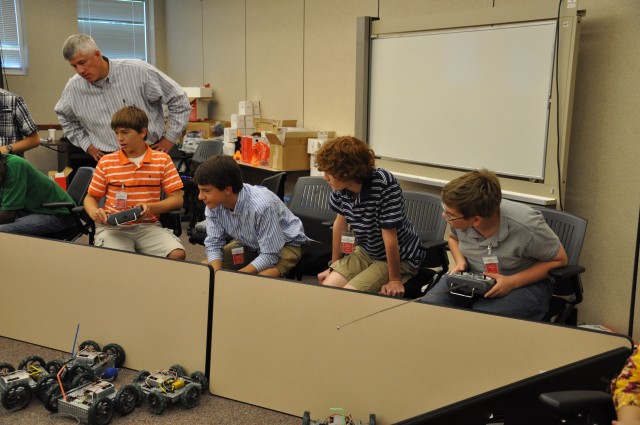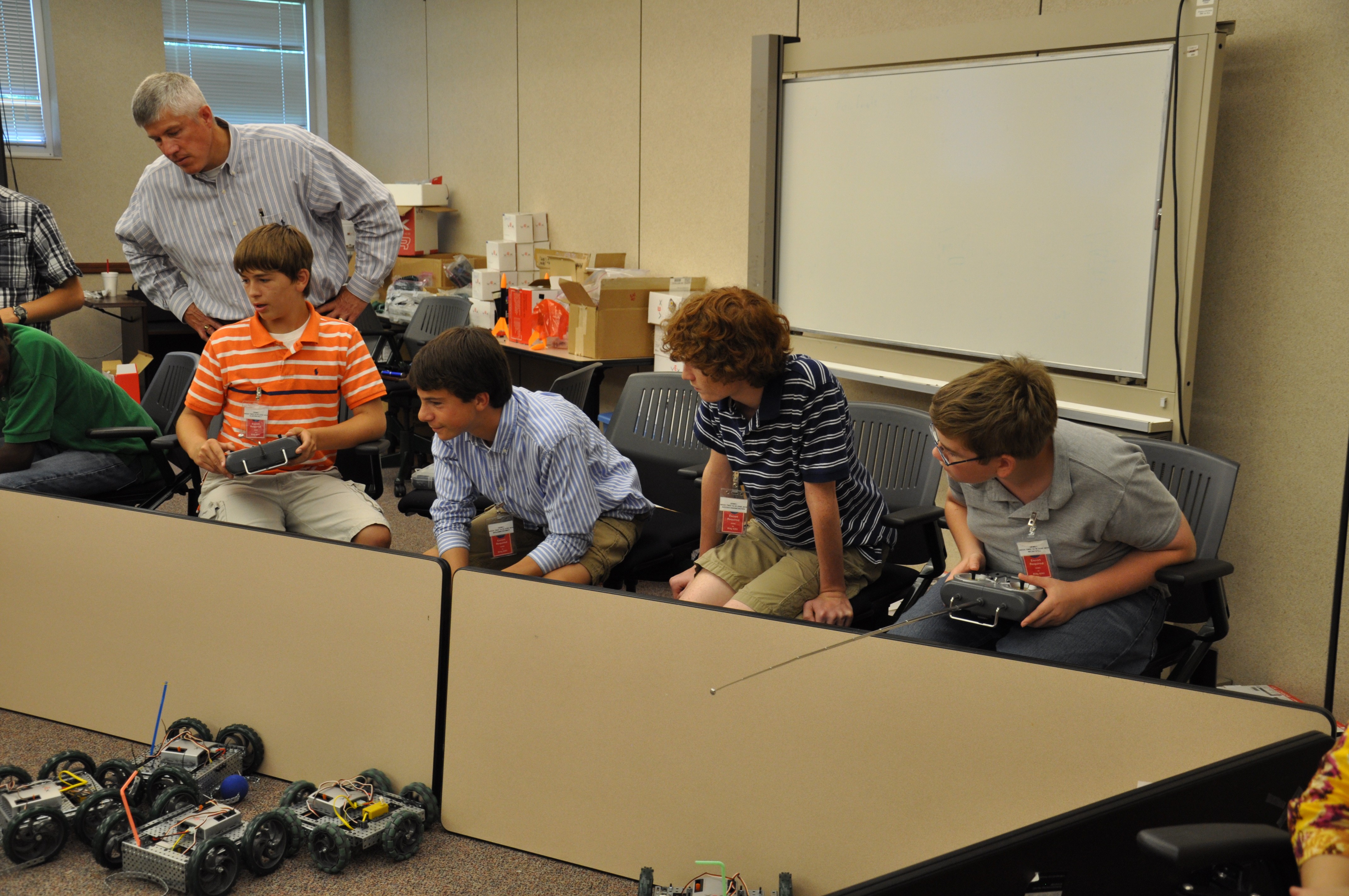On a recent Friday afternoon a small blue ball was thrown into the air, it dropped into the middle of a fray - not of men or women, but of robots. Robots made of four or six wheels with all sorts of blocks, scoops, claws and spikes.
These robots were made by students in the Gains in the Education of Mathematics and Science program.
Watching this soccer match is like watching the World Cup. The students' enthusiasm for their game and their team really fills the air just as it did when the U.S. national soccer team took the field.
The only difference with the robot soccer match is there are three teams, three goals, three periods lasting two minutes each and two intermissions, or as they are called in the class "pit stops." The teams must strategize on how they are going to protect their goal while achieving a goal themselves. Sound easy'
Imagine your driveway and your robot, all alone; very easy to drive it back and forth, turn right then left a couple of times rapidly. Now imagine there are six or seven more robots in an area about 8 feet by 8 feet. Driving your robot is a lot more difficult. I forgot, you have to remember the main attraction - the little, blue ball that every robot wants. So you see, robot soccer, all of a sudden, becomes very difficult.
After the first period, the floor of the arena starts to look a bit like a junkyard. There are screws, connectors, bolts and sundry parts on the floor. Even the best-built machines come apart considering the action in the arena.
Two minutes are up!
Once again the battle lines were drawn. Some were left behind because they were not in the arena by the time the ball dropped to the floor so they lay by the wayside unable to defend their team's goal.
Occasionally, as the robots struggled for possession of the prized blue ball they lost contact with their human teammate and agonizingly rolled to a stop - the remote control no longer operable.
The robots would then have to wait for what seemed an eternity for their teammates to rescue them and frantically make them ready for their next battle, during the pit stop.
"I thought the soccer match was great," Eric Edwards, director of the Aviation and Missile Research Development and Engineering Center, said. "The enthusiasm from the students confirmed my belief in the program."
When the final period ended, the students were all smiles and everyone wished the match could continue. There was a final score but all considered themselves a winner because they had fun - even the robots.


Social Sharing